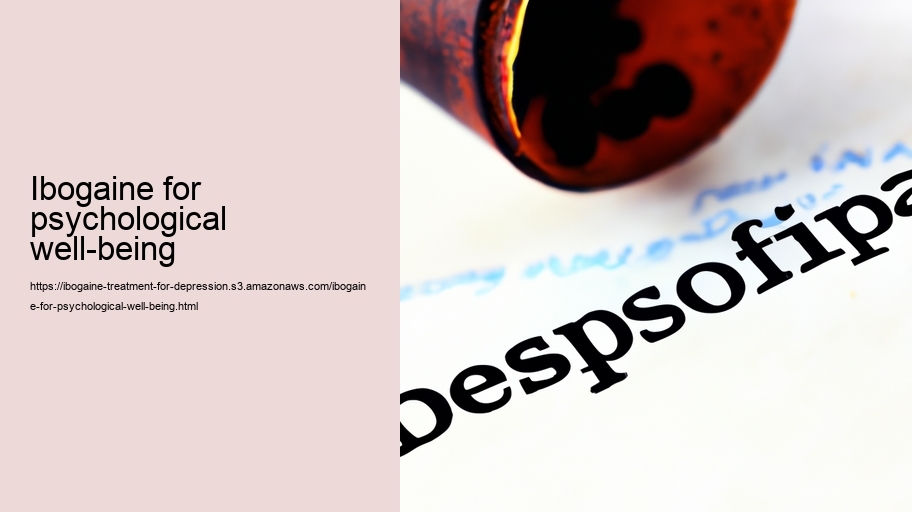Ibogaine for Psychological Well-being: A Journey to the Inner Self
In the labyrinth of therapies and treatments designed for psychological well-being, there lies a compound, mysterious in its nature and profound in its effects—Ibogaine. Extracted from the roots of the African shrub Tabernanthe iboga, Ibogaine is traditionally employed in spiritual ceremonies by indigenous communities. In recent times, however, it has been increasingly explored as a potential pathway to healing for individuals grappling with mental health issues and substance dependence.
The quest for mental wellness often leads people down various avenues—some conventional and others less so. Ibogaine sits on this spectrum as an unconventional choice that promises not just symptomatic relief but a radical confrontation with the self. Its ability to catalyze deep introspection makes it more than a mere substance; it is a journey through the psyche's most hidden corridors.
Those who have turned to Ibogaine often do so after finding little solace in traditional therapies. They are seeking something transformative—a reset button for their minds. Ibogaine’s appeal lies in its reported capacity to provide just that: an intense experience that can reframe personal narratives and provide clarity where once there was confusion.
At first glance, Ibogaine might seem like another hallucinogenic drug offering escape rather than healing. Yet those who advocate for its therapeutic use argue otherwise. They describe an experience that peels back layers of emotional pain, trauma, and addiction-induced fog to reveal one's authentic self—a process they claim is far from escapist.
Scientific studies into Ibogaine's efficacy lend credibility to these claims. Research indicates that Ibogane may help alleviate withdrawal symptoms from opiates and other drugs by resetting chemical balances within the brain—an effect likened to turning back time on one's neuropsychology to a pre-addicted state.
But perhaps what sets Ibogaine apart most starkly from other substances is its psychospiritual component. Users report undergoing powerful visions or dreamlike states during their experiences where they confront past traumas, engage with inner demons, or gain new perspectives on life challenges—all under the watchful eye of experienced facilitators who ensure safety throughout this vulnerable journey.
Despite such promising anecdotes and supportive research data, it would be remiss not to mention the risks associated with Ibogaine treatment. It is not universally safe; individuals with certain heart conditions or those taking particular medications could face severe complications if they consume it without medical supervision.
Moreover, regulatory hurdles across many countries make accessing Ibogaine legally difficult if not impossible—adding yet another layer of complexity when considering this path towards psychological well-being. As such, many advocates call for further studies and revisions in legislation so that those battling severe mental health struggles have access under controlled settings.
As we delve deeper into understanding our minds' intricate workings through scientific progressions while simultaneously yearning for meaning amidst modernity's chaos—the allure of something like Ibogenine grows ever stronger among seekers of wellness beyond conventional paradigms.
To conclude our contemplation on this enigmatic ally against psychological affliction: If approached responsibly and respectfully—with adequate preparation both psychologically and medically—Ibogenine presents itself as a potent tool capable of unlocking profound insights within us all; paving ways toward recovery paths less traveled but potentially rich with transformational promise.
